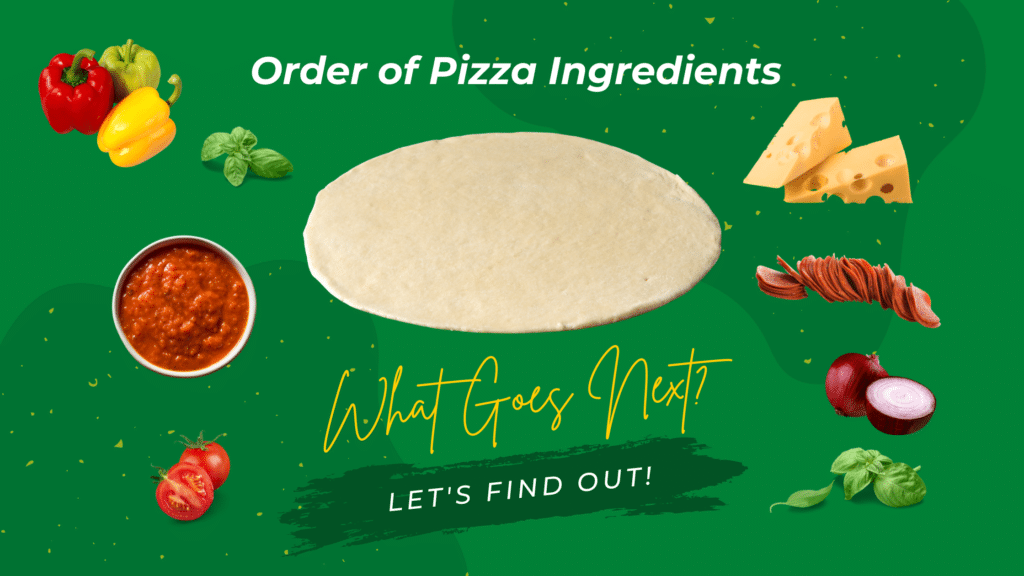What is the Order of Pizza Ingredients?
Order of Pizza Toppings
Are you wondering what is the correct order of pizza toppings when making pizza?
Don’t worry; you are not alone.
This question is common among beginner pizza makers and a constant debate between chefs and pizza enthusiasts worldwide who argue about the “correct order.”
But does such a thing exist?
Does it matter if you put the cheese first? Or is it an “anything goes” kind of thing?
Today, we will review the recommended and standard order of pizza ingredients for the most common pizzas.
So, let’s get started!
Here’s What You Will Find:
Key Takeaways
Pizza Toppings Order
Order of Pizza Toppings
1- Start with the pizza base
2- Add the sauce
3- Add the cheese
4- Add the toppings
5- Add the finishing cheese
6- Add a garnish
When it comes to pizza toppings, less is more. Don’t overload.
Different pizza toppings cook at different times, layer accordingly.
What is the Order of Pizza Toppings?
The truth is, that the order of pizza ingredients differs per recipe or pizza style.
The pizza’s basic structure contains the main categories: the crust, sauce, cheese, and pizza toppings.
In the past six decades, pizzas all over the globe have used variations. The essential ingredients always remain, with chefs adding their twist to the combinations.
Recommended Pizza Toppings Order
While the order of pizza ingredients changes per recipe, the usual order of pizza ingredients has tomato sauce on top of the dough. The cheese follows, with the pizza toppings coming in last.
This order gives the cheese enough heat to bubble and have a nice brownish color. The toppings also get direct heat, achieving a crispy and flavorful texture.
Steps to Build Your Pizza
Order of Pizza Toppings
1- Start with the Pizza Crust
The dough serves as the base for all other ingredients. Make sure you use pizza dough that fits your pizza style, as different types of flour produce different results.
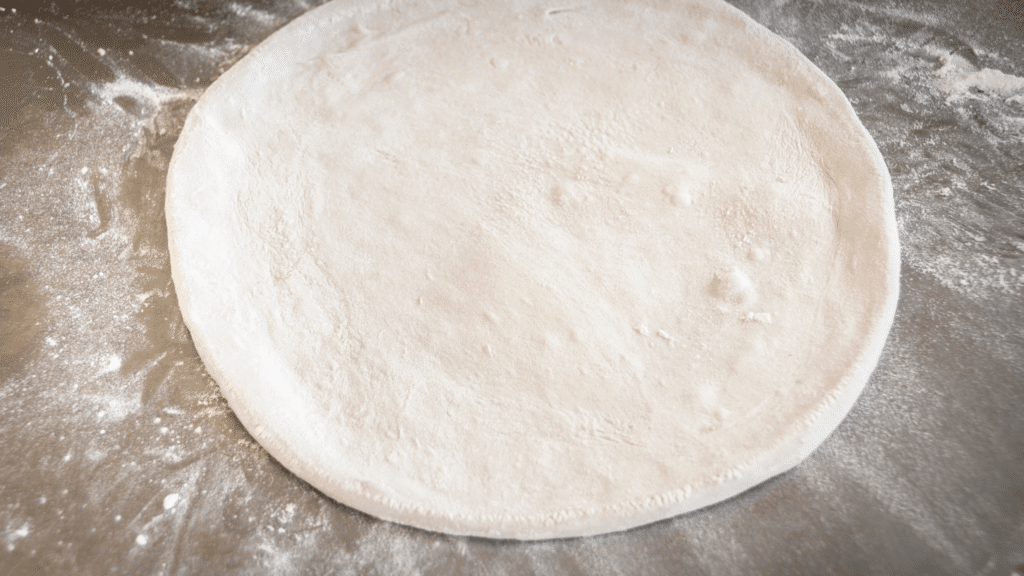
For a thin crust the dough should be about 1/4 inch thick and for a thicker crust the base should be about 1/2 in thick, you can use a rolling pin, but is best to use your hands. If you want a thin and crispy crust, remember not to overload the dough. Too many toppings may cause the crust to break and leak the sauce. To make things easier you can place the base on a pizza peel and build it from there.
2- Add the Sauce
The sauce goes next, that is the first layer. Pay close attention to the fluidity of the sauce, as you do not want to choose a watered-down sauce and spread the sauce evenly.
Although tomato is the most common pizza sauce, you can use many other types of sauce these days. White sauce is a perfect example as well as pesto. Just make sure to spread a thin layer of the sauce across the entire pizza.

A sauce that is too watery can change the consistency of your dough. If you want to distribute your favorite delicious pizza toppings evenly across the entire pie, use a thicker pizza sauce. However, too much sauce will make the pizza soggy. The amount of pizza sauce can make the diffence between good pizza and great pizza.
Pro Tip
Using a circular motion, spread the sauce from the center of the crust outward throught the entire pizza, leaving 1/2 inch of the edge without sauce.
A thick layer of sauce can make the pizza heavy and difficult to manage.
3- Add the Cheese
After the pizza sauce, the cheese comes next. It is the most common topping in modern pizzas. Some low-cost pizzas even use cheese as the only topping.
Although the popular ones include Mozzarella, Parmesan, and Cheddar, you can use any cheese.
Cheese is rich in calcium and sodium but also has a lot of fat. You may want to check your options, especially if you want to make a low-fat pizza.
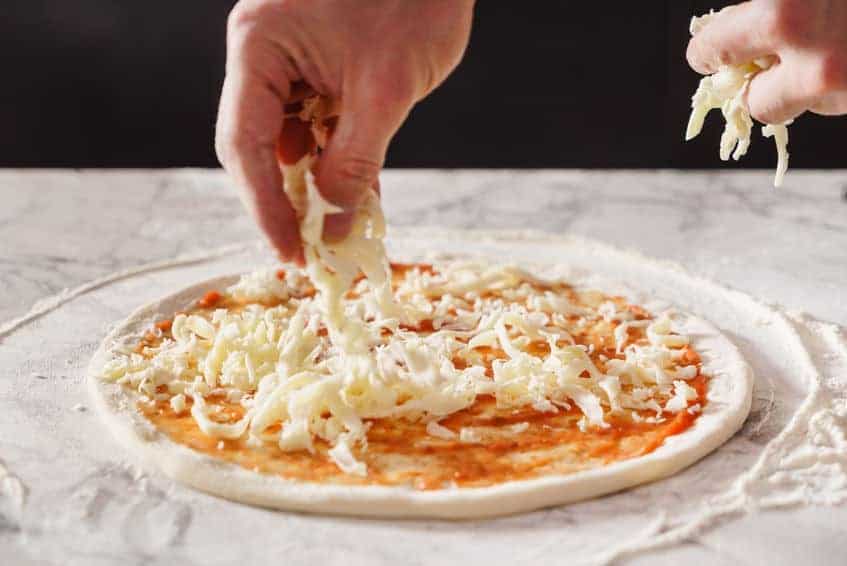
Remember that your guests or customers may wish for a low-fat or vegan variant, so explore other types of cheese.
Also, watch the amount of cheese you put after the sauce. You do not want to go overboard and overpower the other pizza toppings.
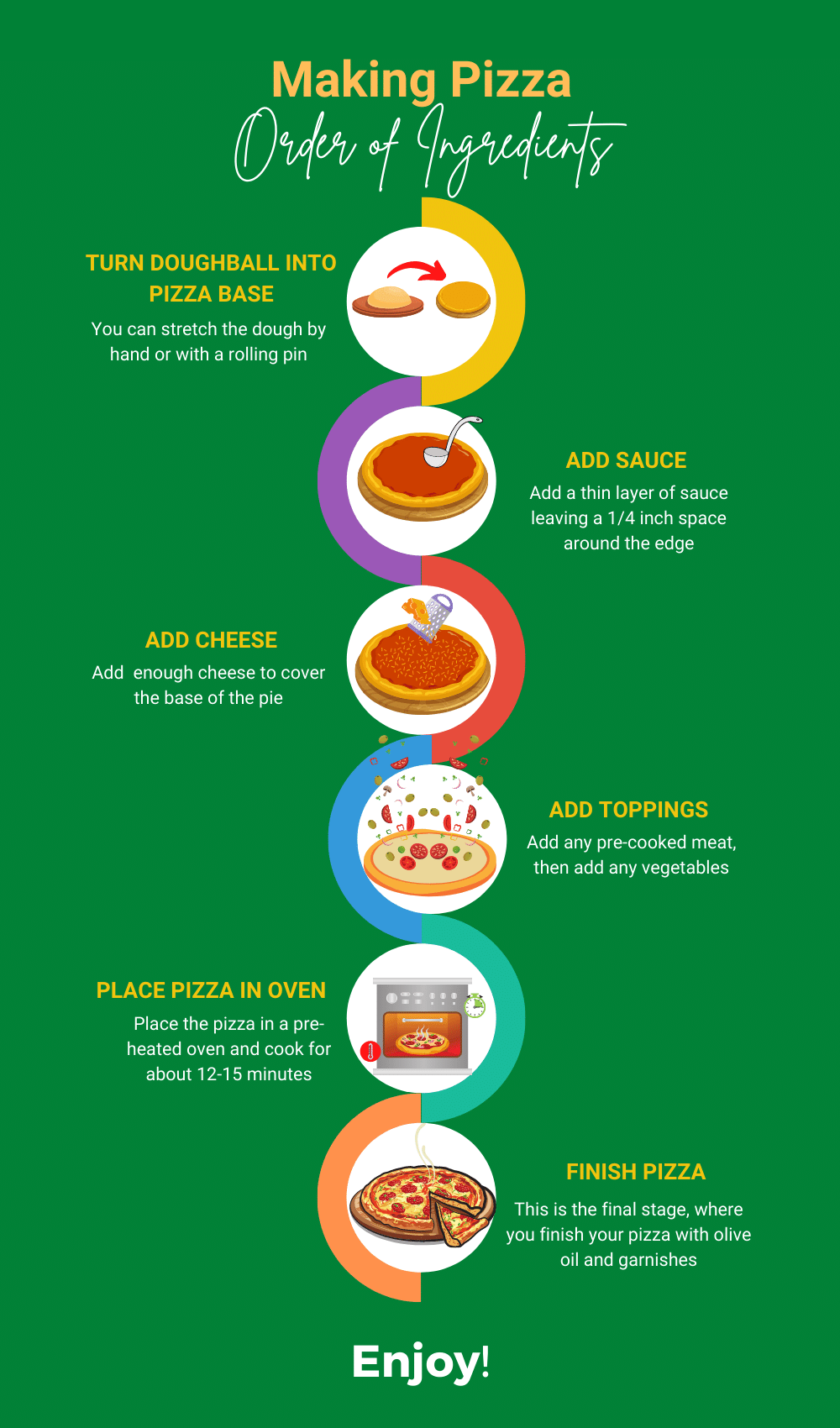
4- Add the Toppings
Adding toppings is the best part of assembling a pizza. When placing your favorite pizza toppings, there is often an order to follow for specific recipes. They are commonly placed on the cheese because they add moisture and composition to the pizza toppings.
This moisture will evaporate when you bake your pizza in the oven. But when this moisture has nowhere to go, it will make your pizza soggy.
Typical vegetable toppings include tomatoes, bell peppers, mushrooms, onions, and black olives. Meat toppings often include bacon, ham, and chicken.
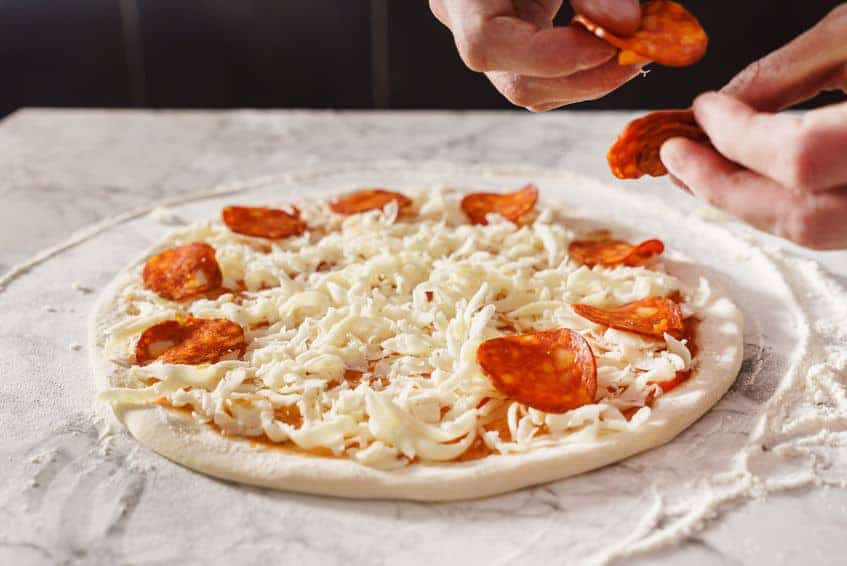
Seafood toppings, such as shrimp and salmon, are also seen in some recipes.
You may also experiment, by adding other uncommon pizza toppings like marshmallows and bananas. Of course, these are often for the more adventurous types!
If you are new to baking pizzas, it is best to go with the staples.
As for the order of the pizza toppings, it depends. All-meat pizzas require you to place the meat on top of the cheese.
As for garden pizzas, the vegetables cook better when placed under a cheese coating.
5-Add the Finishing Cheese
This step is optional, but a finishing cheese gives the pizza the extra kick.
After putting your meat or vegetable toppings, it helps to have an additional layer of cheese.
Some good choices for finishing cheese include parmesan, goat cheese and pecorino.
Lightly coat the pizza with grated parmesan cheese, then proceed to the next step.
6- Add a Garnish
When satisfied with the other toppings, you can add some garnish to finish the pizza.
Most people put basil, mint leaves, and other leafy greens.
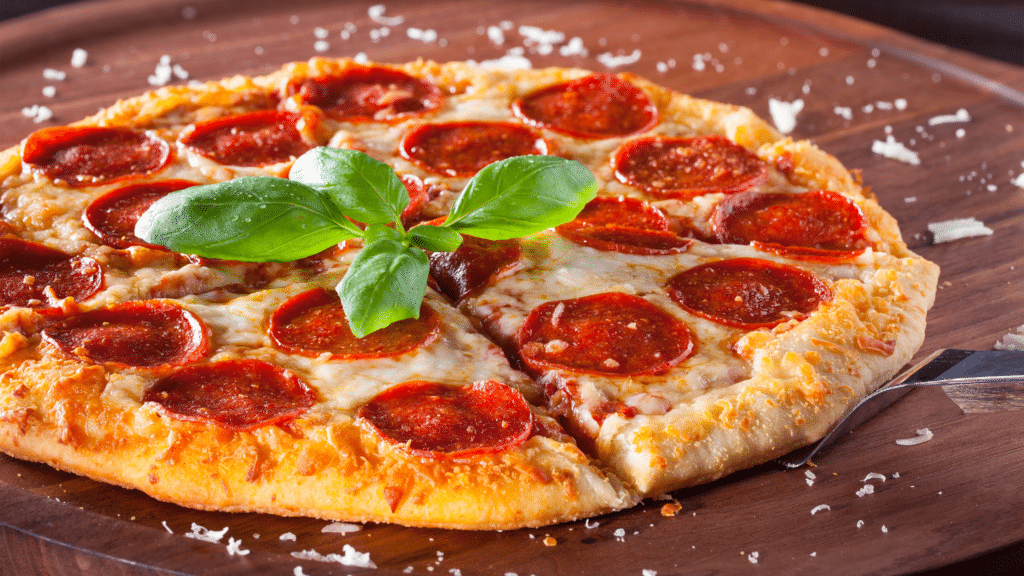
Go for a garnish that complements your pizza’s toppings without changing the taste.
We love to add finishing salt, olive oil or better yet, truffle oil for an incredible flavor. There are endless possibilities!
Pro Tip
Do not load the center of the pizza with toppings. The ingredients should be spread evenly over the entire pie to ensure the proper portion of toppings on every slice.
Why Should I Go with the Recommended Order of Pizza Ingredients?
The most significant benefit of this order of pizza ingredients is the ensured texture and flavor. You improve the taste of the toppings by prioritizing some ingredients first.
For example, putting the cheese and toppings in this order will ensure perfectly cooked toppings. They will change in appearance, giving them a slightly roasted color and resulting in a better flavor and texture.
This order also makes for a presentable pizza. The toppings coming in last will make it more pleasing to the eye.
That way, people can see what is on the pizza. It allows them to get excited to take a bite.
On the flip side, burying all the toppings under the cheese will prevent them from visualizing the taste.
The toppings being last also adds color to the pizza. A colorful pizza will be eye-catching and can attract more people.
It also looks better in photos if you are the type to post-baking pictures on Instagram. Or maybe you want to show your family and friends what you made!
But besides looking better, the recommended order prevents the different ingredients from getting mushy.
Toppings buried under cheese will get too much heat, leading to a soggy texture. This effect happens because of rapid heating, which leads to steaming.

What are the Drawbacks of Using the Recommended Order of Pizza Ingredients?
And like all things, this order of pizza ingredients isn’t perfect either. For one thing, putting the tomato sauce directly on the dough can also make it soggy.
The dough can absorb too much water, producing a stale and less crispy pizza.
But do not fret. You can quickly solve this. You can add sliced cheese on the base to avoid a soggy crust.
After this, you can pour your sauce. The sauce will be easier to apply to the slices instead of the dough. Then, you can proceed as usual with the meat and vegetable toppings.
If you still want an attractive cheese finish, you can add grated Pecorino or Parmesan cheese. You can add these finishings after the pizza finishes in the oven. You can also add some leaf greens for garnish.
What if My Pizza is Unique?
Not every pizza is the same. You may be a more adventurous chef, choosing to experiment with different flavors.
Some pizzas have cheese on top first. These include Sicilian-style pizzas, which have cheese on top of the pizza dough. The tomato sauce follows before the toppings round out the recipe.
Sicilian pizzas are ordinary in Massachusetts, New York, and Illinois. Chefs following this style note that the crust cooks and crisps better without the sauce.
A Chicago-style deep dish pizza also has the cheese before the tomato sauce, making for a distinct and crispy taste.
How Many Toppings and How Much Should I Add to the Pizza?
How Many Toppings on My Pizza?
Regarding how many and how to layer pizza toppings, it is up to you and the topping combination you would like to have on your pizza.
However, we recommend not to overdo the toppings as they add a lot of weight to the pizza, and if you have too many your pizza will take longer to cook, and some of the toppings may not be cooked properly.
How Much of Each Topping on My Pizza?
Please find our recommended amounts of pizza toppings per pizza size in the below table:
Recommended Amounts of Pizza Toppings
| Pizza Size | Sauce | Cheese | Pepperoni | Meats | Vegetables | Top Cheese |
|---|---|---|---|---|---|---|
| Personal 7″ | 1.5oz | 2oz | 8 Slices | 2oz | 1 – 2oz | .5oz |
| Small 10″ | 2oz | 3oz | 16 Slices | 3oz | 2 – 3oz | 1oz |
| Medium 12″ | 4oz | 6oz | 20 Slices | 4oz | 3 – 5oz | 1oz |
| Large 14″ | 5oz | 8oz | 32 Slices | 5oz | 5 – 7oz | 1oz |
| X-Large 16″ | 6oz | 10oz | 40 Slices | 6oz | 6 – 10oz | 2oz |
What Else Do I Need to Remember About Pizza Toppings?
There are many ways to layer pizza toppings on a pizza. Some people prefer to use an orderly approach, while others enjoy a more random method.
However, you must remember that certain toppings do better when cooked separately.
When topping your pizzas, think about the final product.
How will these ingredients cook inside the oven?
The oven used to bake pizzas is very hot, cooking food items rapidly. This heat can damage some of your toppings.
If your desired toppings cook very quickly, putting them under a cheese coating makes more sense, protecting them from too much oven heat.
After all, nobody wants to eat burnt toppings. These make the pizza taste better, so ruining them is not something you like.
Make sure to ask yourself questions about the meat or vegetables. Would they quickly burn if I placed them on top?
Do I want them soft or crunchy? You also want to consider any allergies among family or friends.
The last thing you want is someone getting sick because of seafood or nuts.
Remember that not all toppings are the same, when putting toppings on pizzas, those that burn quickly go under cheese.
The general rule is to give the toppings that need the most cooking and browning—such as raw meat, sausage, pepperoni or vegetables—the most surface area on top of the pizza.
Accordingly, those that need more heat should be on top.
An alternative is cooking the toppings first before putting them on the pizza. Although this method can take longer, it provides better moisture to the toppings.
For example, mushrooms should always be pre-cooked due to the high amount of water they contain.
If you decide to cook your toppings first, they go on top of the cheese.
You are adding fresh mozzarella, it should go last, because fresh mozzarella cheese has a lot of moisture that can make your pizza crust soggy.
The Last Slice
The order of the pizza toppings depends on you. To follow the recommended order, you must account for your toppings.
For your next pizza, carefully weigh each ingredient’s placement by thinking of the final product. You do not want a burnt or soggy pizza.
Although it is usually advisable to put the tomato sauce first, there are some exceptions.
Sicilian style or Chicago deep dish pizzas have the cheese first, creating a perfect pizza crust. You also want to think of toppings that burn easily. Those must go under the cheese for heat protection.
Make sure to visualize how the pizza will come out of the oven.
Will it still be attractive if the cheese covers the pizza?
Or should you put all the meat and vegetables on top? You will know the answer to these questions based on time and personal preferences.
Do not be afraid to experiment. Build the perfect pie!
All famous pizzerias have their principles in ordering pizza ingredients. But you also have to account for what works for you.
You might develop a distinct order, a trademark recipe that will last generations!
Whatever the case may be, remember to take your time to properly layer while baking pizza. Classics do not pop by in a flash.
Along with a perfectly made pizza, it takes a lot of dedication to create the perfect order for you!
Additional Resources on Toppings
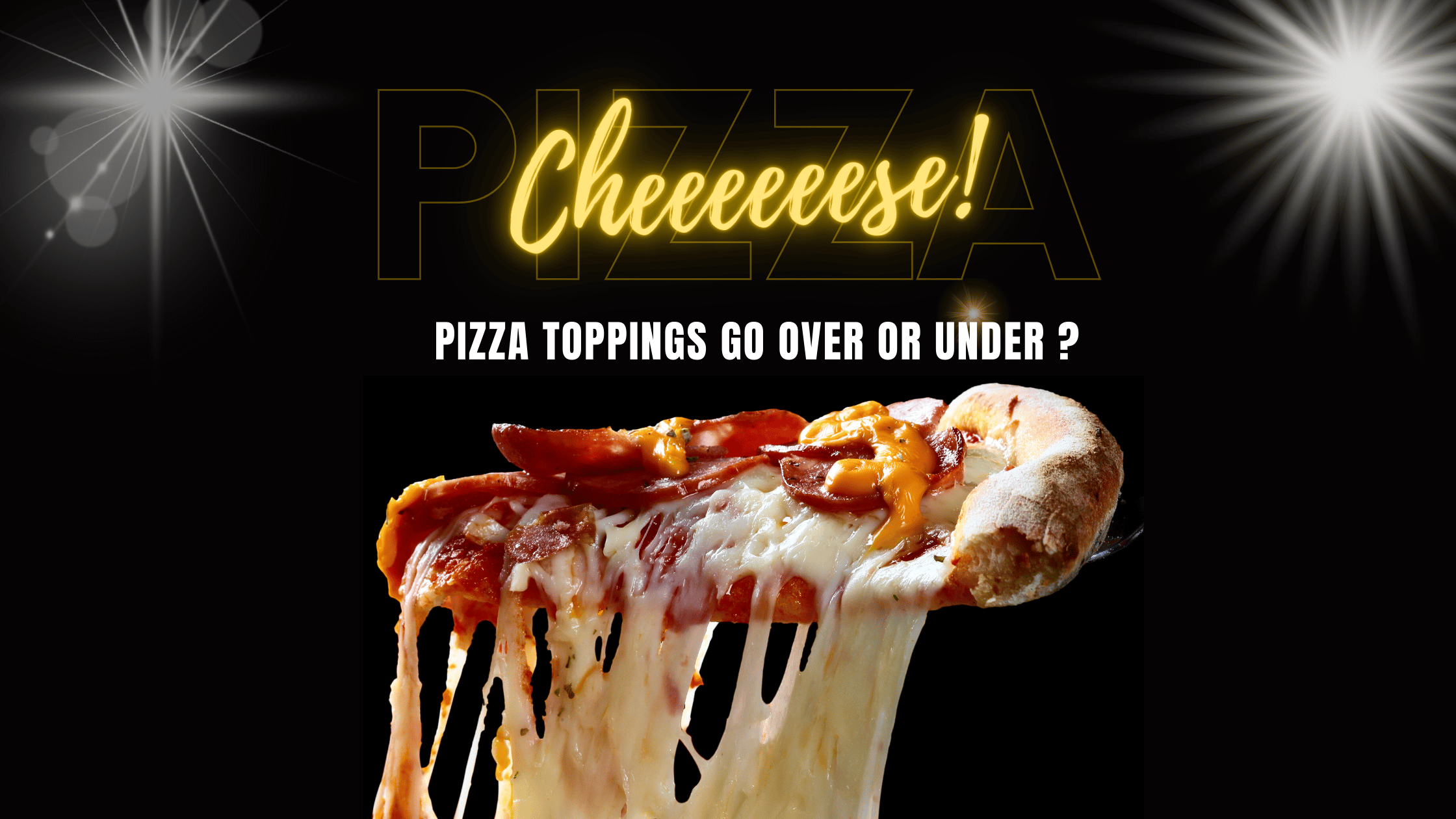
Pizza Toppings Under Cheese or Over Cheese? [Why the Order Matters]
the PROs
Is Pizza Cheese on Top or Bottom? Hey pizza lovers, are you wondering if you should layer pizza toppings under …

Weirdest Pizza Toppings: Exploring the World One Slice at a Time
the PROs
Check Out Our 60+ Weird Toppings List Have you ever pondered what might be the weirdest pizza toppings ever to …
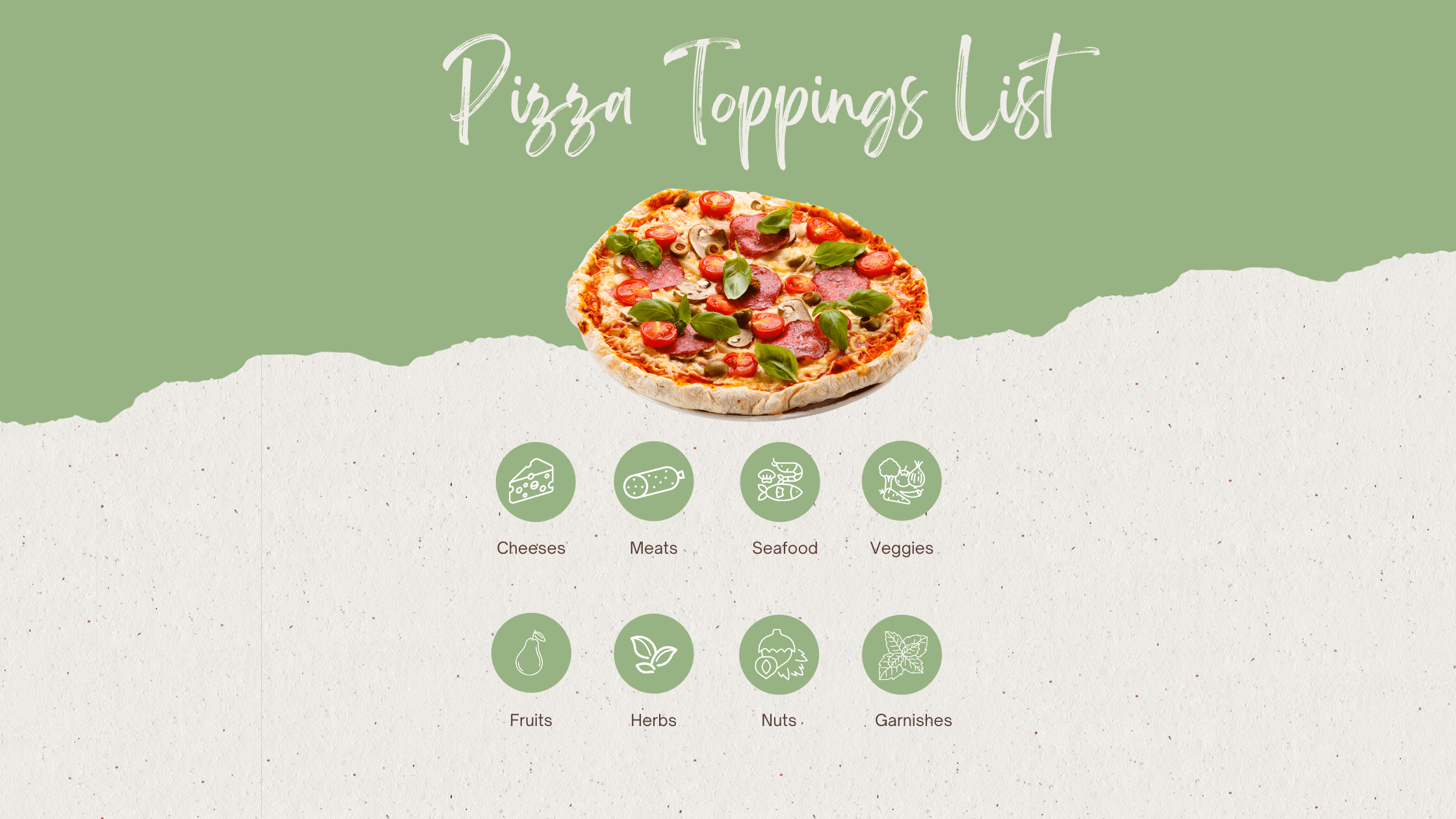
Ultimate Pizza Toppings List (The Best of 2023)
the PROs
Plus: A Creative Tool to Make Your Own Pizza Topping Combination Best Pizza Toppings List Are you looking for the …
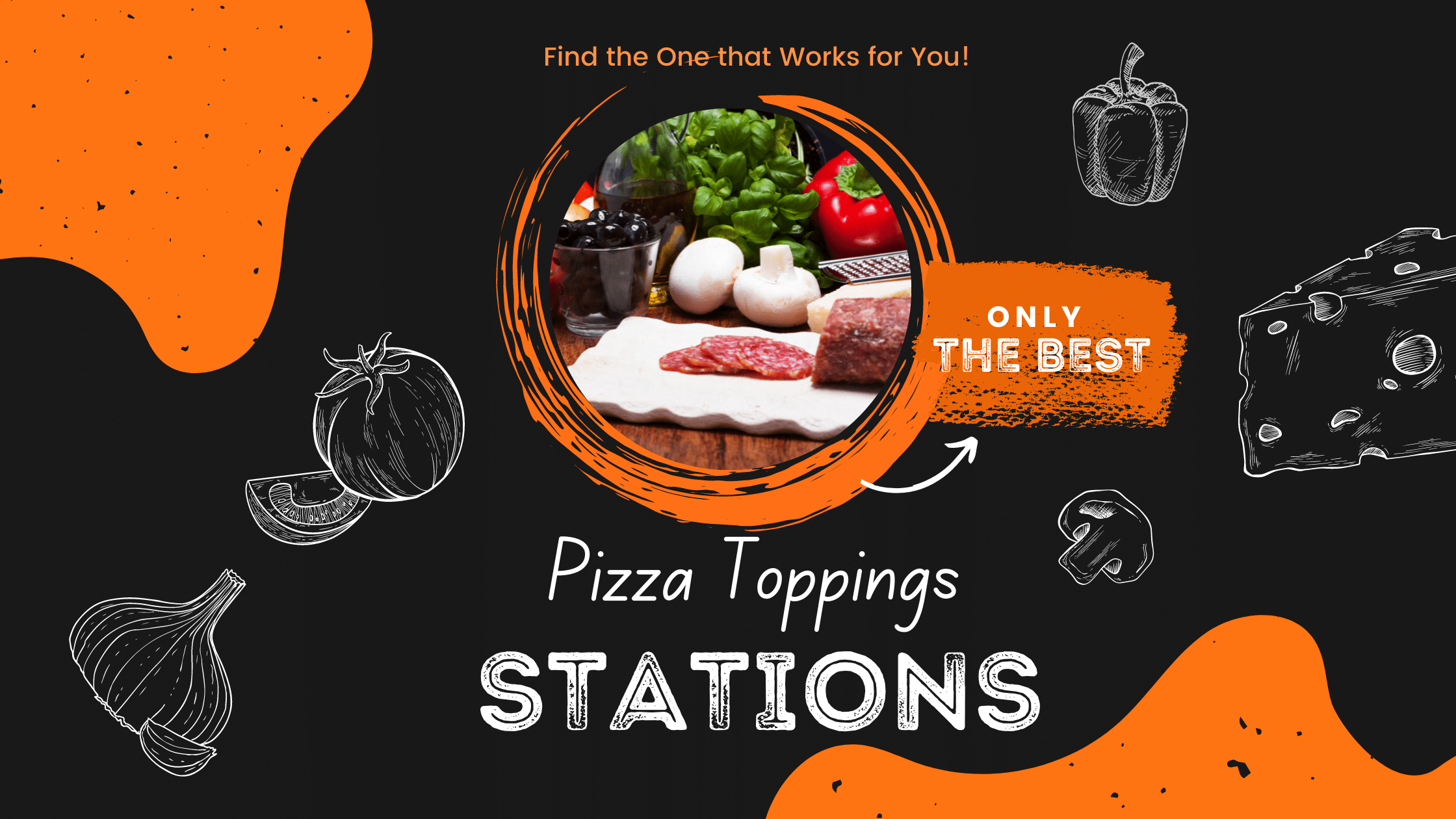
Take Your Pizza Parties to the Next Level with These Pizza Topping Stations
the PROs
Pizza Toppings Stations Ideas Are you looking for pizza toppings stations? You know how messy it can be if you …
Enjoy!
Not a PRO? Not a Problem!
Take a pizza class to bring your pizza skills to the next level,
so you can be a PRO!
Related Posts
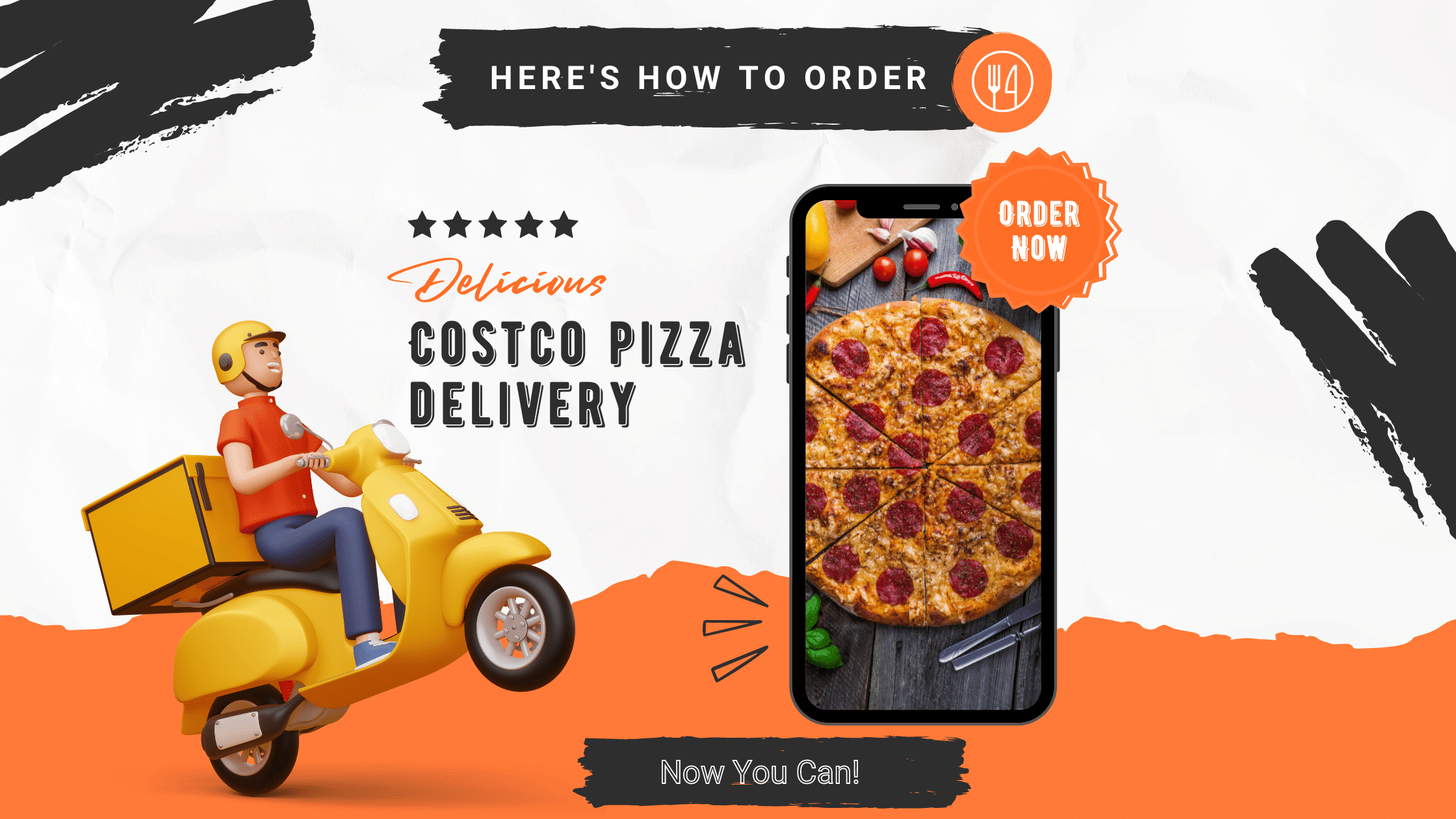
Costco Pizza Delivery: Find How You Can Get It Now!
the PROs
People go to Costco’s food court for many different reasons, but the cheesy slice of pizza they serve is among …
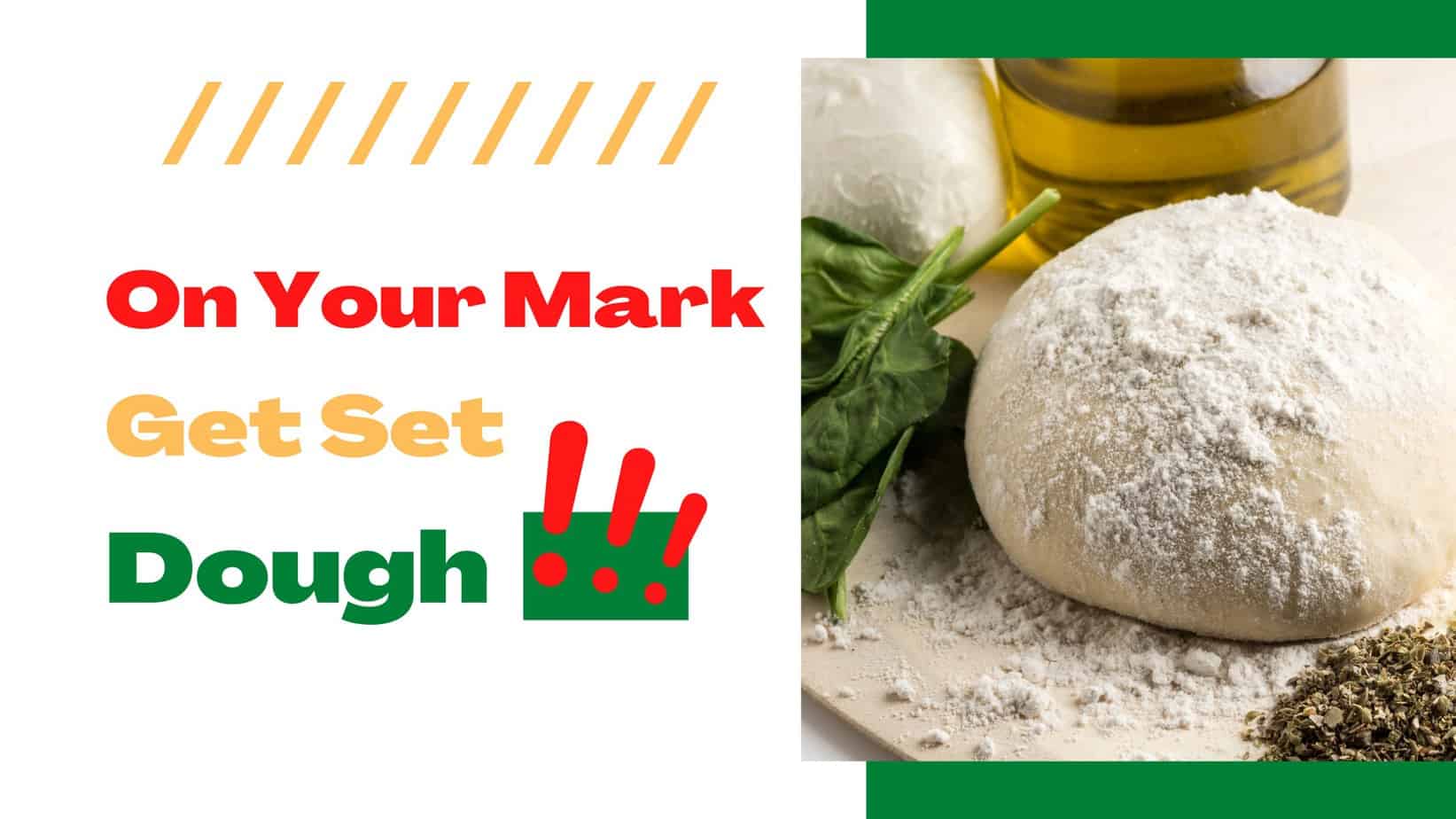
Pizza for Beginners: Don’t Buy Pizza, Make It! Here’s How to Get Started!
the PROs
You have this idea that you want to make pizza at home as opposed to ordering it, but where do you start? Don’t worry! Here you will find answers and directions to all your questions.

Pizza Toppings Under Cheese or Over Cheese? [Why the Order Matters]
the PROs
Is Pizza Cheese on Top or Bottom? Hey pizza lovers, are you wondering if you should layer pizza toppings under …
Newsletter
Subscribe to our Recipe of the Week newsletter and receive our partners’ latest recipes, tips, and discount offers.
Keep in Touch!
